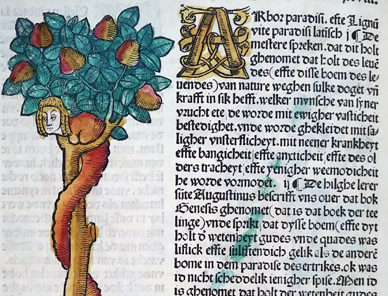
The Medical Historical Library contains over 300 medical and scientific incunabula, which are books, broadsides, and pamphlets printed before 1501. These incredibly rare incunables represent the earliest history of printing in Europe and the first examples of medical knowledge circulated in printed form. Many of the incunables display elements of the print and manuscript world, including marginalia, historiated initials, and some of the earliest printed depictions of the human body, often derived from manuscript illustrations. The incunables digitized in this project represent ones not found online anywhere. Topics include astrology, medicine, plague, anatomy, remedies, herbals and much more.
The effort to digitize these incunables and make them freely available worldwide was generously funded by the Arcadia Fund.
The incunable collection was donated to the Medical Library by one of our founders, Dr. Arnold Klebs (1870-1943), a Swiss tuberculosis expert and bibliophile. The last decade of Klebs’ life was especially devoted to his ambitious incunabula project. He hoped to publish a catalog with full entries for scientific and medical incunabula. In 1938, he published a short-title catalog (i.e. brief entries), Incunabula scientifica and medica, of all known scientific and medical incunabula.
Klebs did not purchase many incunabula himself. Instead, he encouraged fellow bibliophile and famed neurosurgeon Dr. Harvey Cushing to buy them and acted as intermediary with book dealers in Europe. Through the efforts of Klebs and Cushing, Yale’s Medical Historical Library holds one of the largest medical and scientific incunable collections in the United States.
Please explore these incunables on the Cushing/Whitney Medical Library site on Internet Archive, as part of the Medical Heritage Library. You can also find other Arcadia-funded digitized texts, including medieval and Renaissance medical and scientific manuscripts, Yale Medical School theses and early Arabic and Persian books and manuscripts, in this collection.
